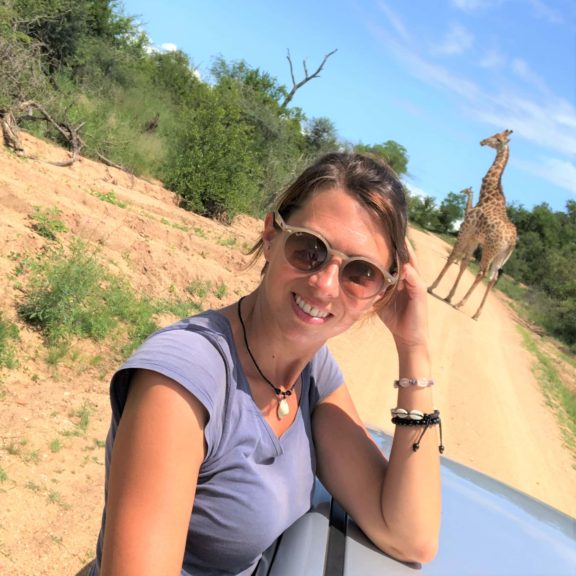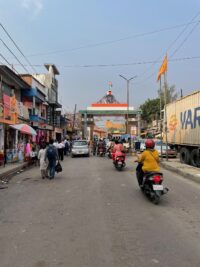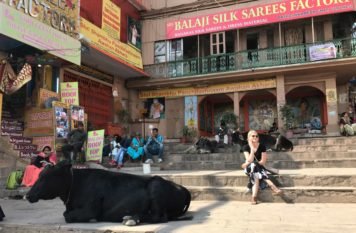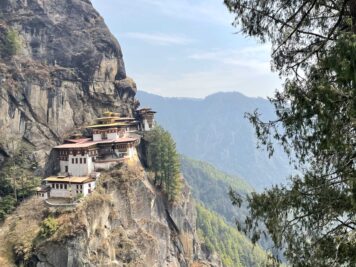A day’s travel brought us from Banjul back to Senegal again. We scrambled out of our overcrowded and decrepit sept-place at the overcrowded and decrepit station of sorts just outside Ziguinchor. It was a long day, and our only meal was the hardboiled eggs we’d bought from a woman with a basketful, out the window of the car when it stopped in a random village.
We wanted to go to Cap Skirring, a town on the beach, and every tout in the vicinity knew it too. They swarmed us instantly with persistent offers of transport, accommodation, food, currency exchange and so on. We shook them off, but despite our best efforts it seems nearly impossible to do anything at all without inadvertently engaging the services of at least one. So, our latest new friend and his ‘assistant’ close on our heels, we set about arranging the next leg of our journey.
We tried to change some money without his assistance – but he was there with his calculator briskly tapping the buttons. We tried to buy some water, but the ‘assistant’ materialised beside us at the market stall, helpfully repeating the price after the shopkeeper. We looked for the mini busses heading to Cap Skirring but he was there, waving tickets and tugging our packs off our backs, shepherding us towards the bus. Even as we settled into our seats he was there, leaning through the window asking for a payment for his services. We didn’t ask for his help (quite the opposite in fact) and all of us knew perfectly well he’d already made money off us via commission on the money changing and on the bus tickets. As for the assistant, he’d done nothing more than follow us to the stall and back. This all may sound like a nuisance but it’s just the way these kind of transactions work. There seems to be some kind of complicit understanding that travellers like us are fair game, and the bus drivers and others working there in an official capacity turn a blind eye and leave us to negotiate the totally arbitrary cost of bringing our backpacks along with us on the trip.
We were now travelling in Senegal’s once-troubled Cassamance region. Like an incision on the map, The Gambia cuts the Cassamance off from the rest of the country and there has long been a separatist movement here, bringing fighting and unrest. Bouncing down the roads in our rusty sept-place we passed through one military checkpoint after another, getting out to show our passports to the soldiers hunkering down behind sandbags.

The local people have resisted outside influence and authority starting with France’s colonial administration and in more recent years, that of the Senegalese government. This eventually led to a cycle of civil wars and shaky ceasefires until a successful peace agreement was reached in 2004.
The conflict and then the sporadic road banditry that followed of course took its due toll on tourism, and for a time foreign governments warned their citizens against visiting the Cassamance. For many local people the collapse of the tourist industry they depended on was as bad as the fighting itself. The French expat running our guesthouse said that as if the political difficulties in the Cassamance weren’t enough of a problem, when followed by the Ebola outbreak – a faraway phenomenon here – businesses like his slowed nearly to a stop. But the tourists and travellers are returning, not to mention the guesthouses, restaurants and services to support them.
We were happy. It’s a beautiful spot, we had a friendly guesthouse to stay at and a long beach to lounge on.
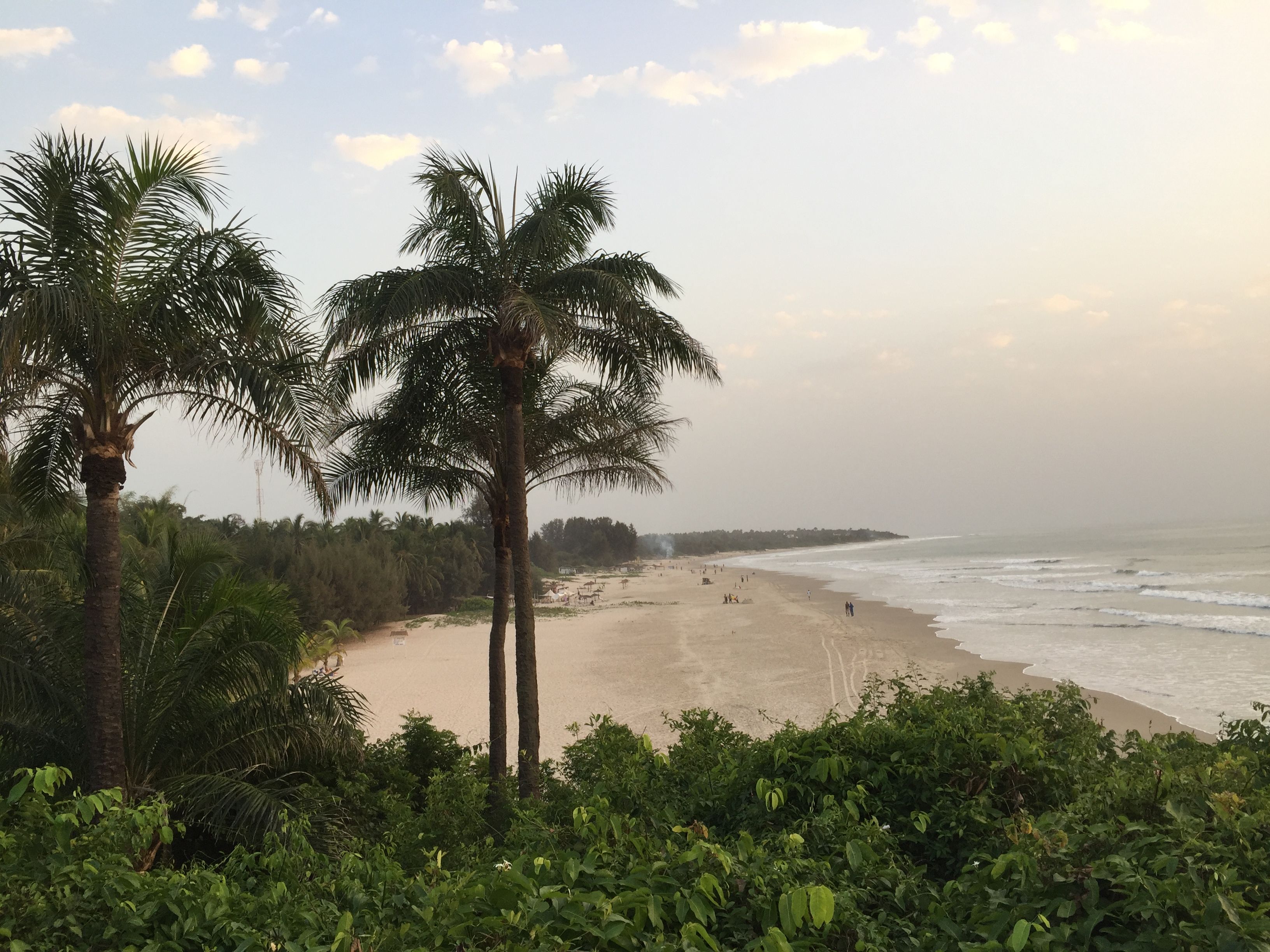
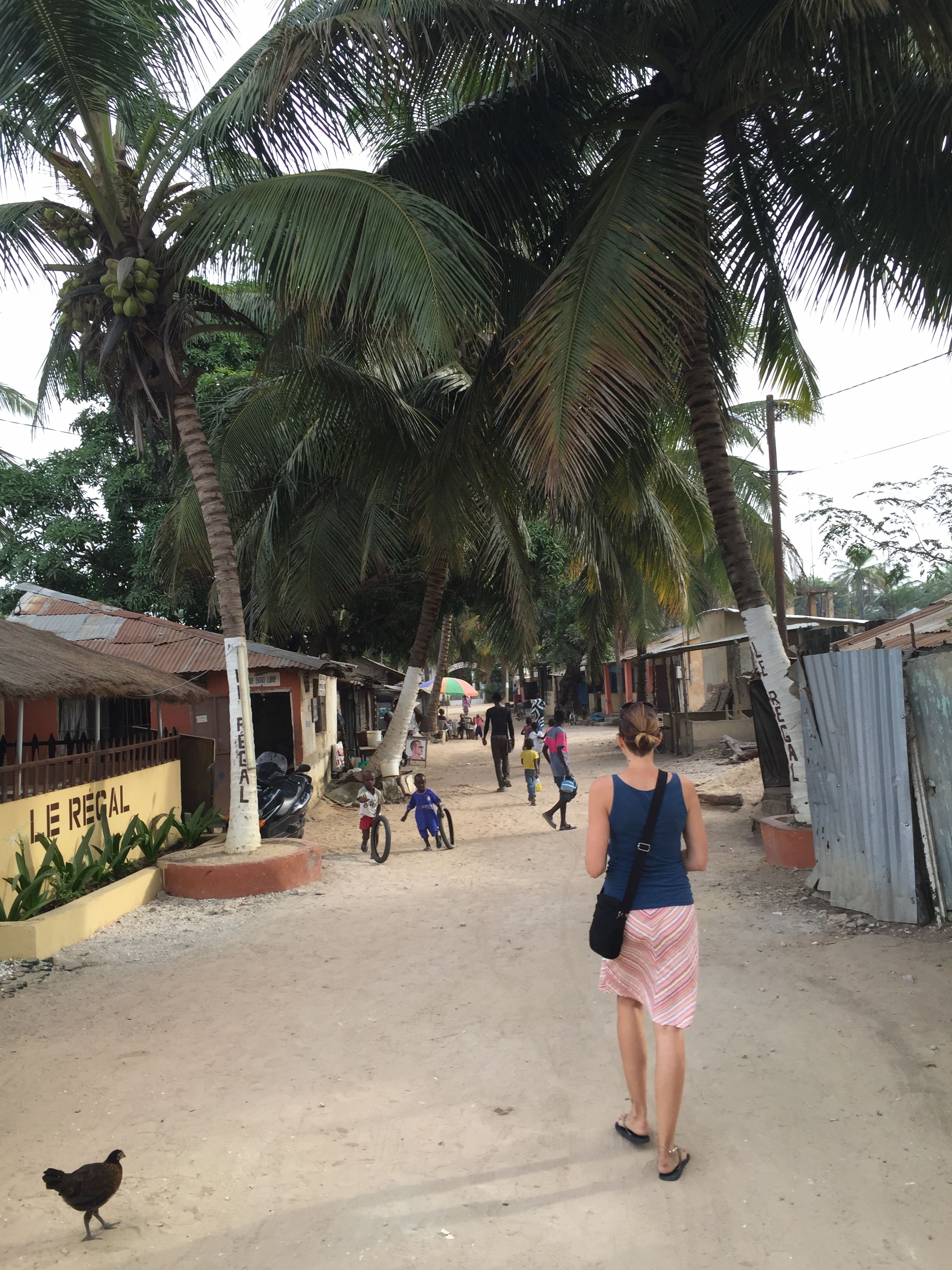
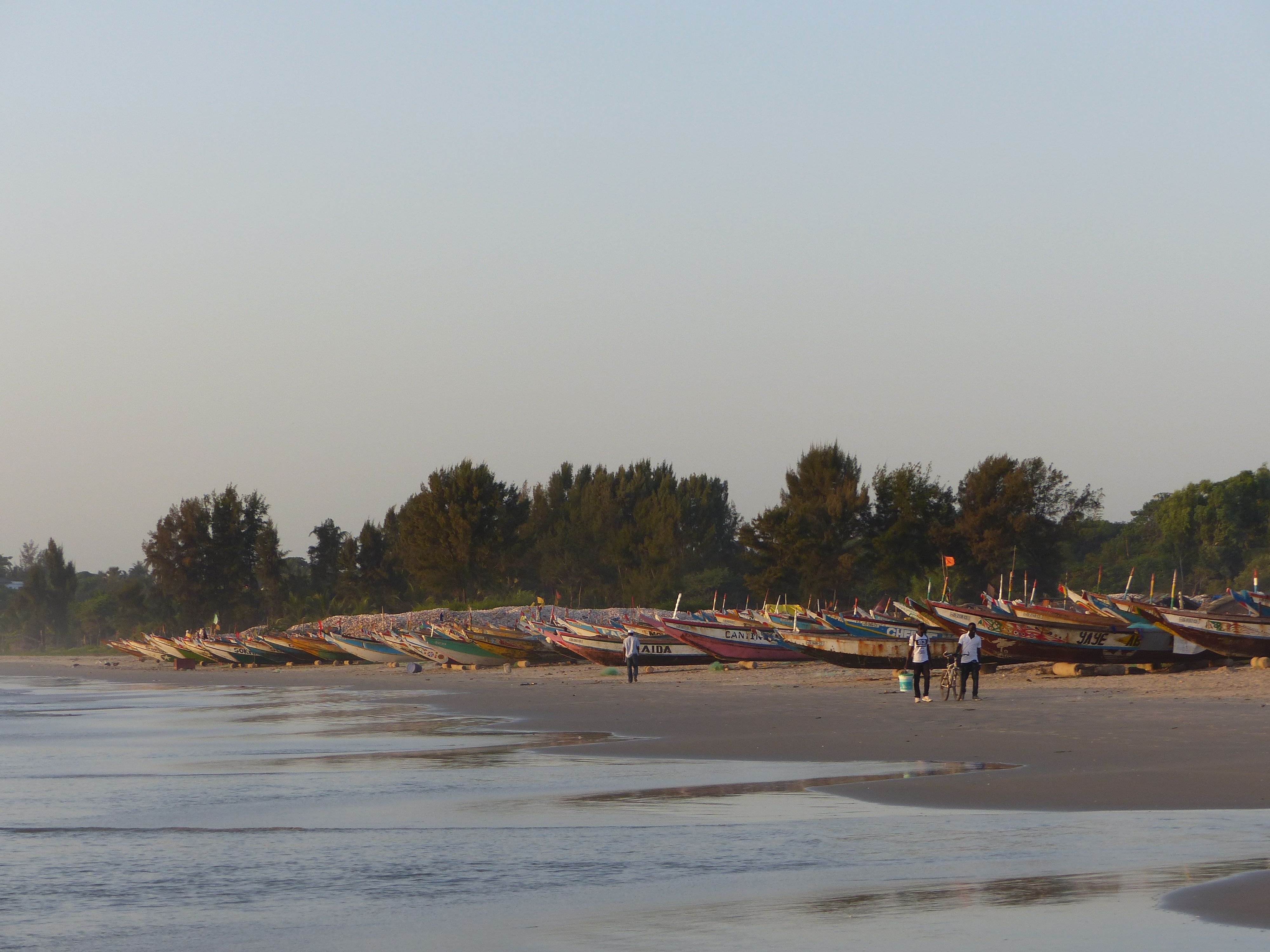
Tourism is back but there’s still a rough edge to the place that makes it interesting. We spent time wandering up and down the beach and Oyv managed to get himself into – and win – a pushup contest.
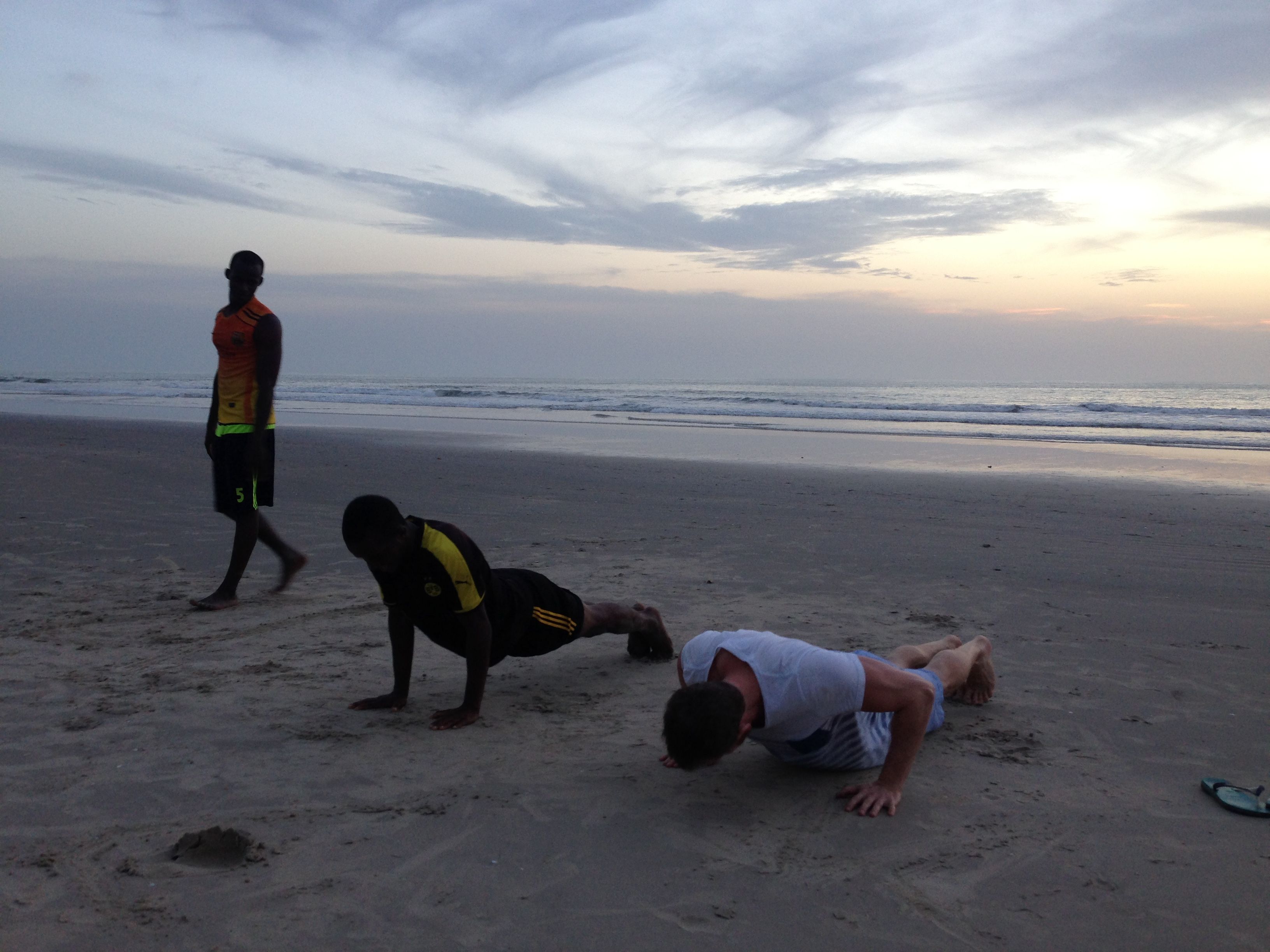
We quickly got used to being addressed as ‘toubab’ – shouts of ‘toubab, toubab’ accompany us wherever we go. It’s a more or less friendly term for a (white) person of European descent. We met several Gambians here, instantly recognisable to us since they could speak English well and seem to like befriending travellers – sorry, toubabs – for no other reason than to speak it.
One day we hired a motorbike and set off to do some exploring. Hiring the bike was a feat in and of itself and only accomplished at all thanks to ‘My French’ which was good enough to argue down an inflated price, at least. The bike came with two helmets but these were just a token to make the police happy. They were not in any way meant to protect us – there were no chin straps so we just perched them ineffectually on our heads, and took off. In just a few moments, we’d left Cap Skirring – more or less a one-street town anyway – behind.
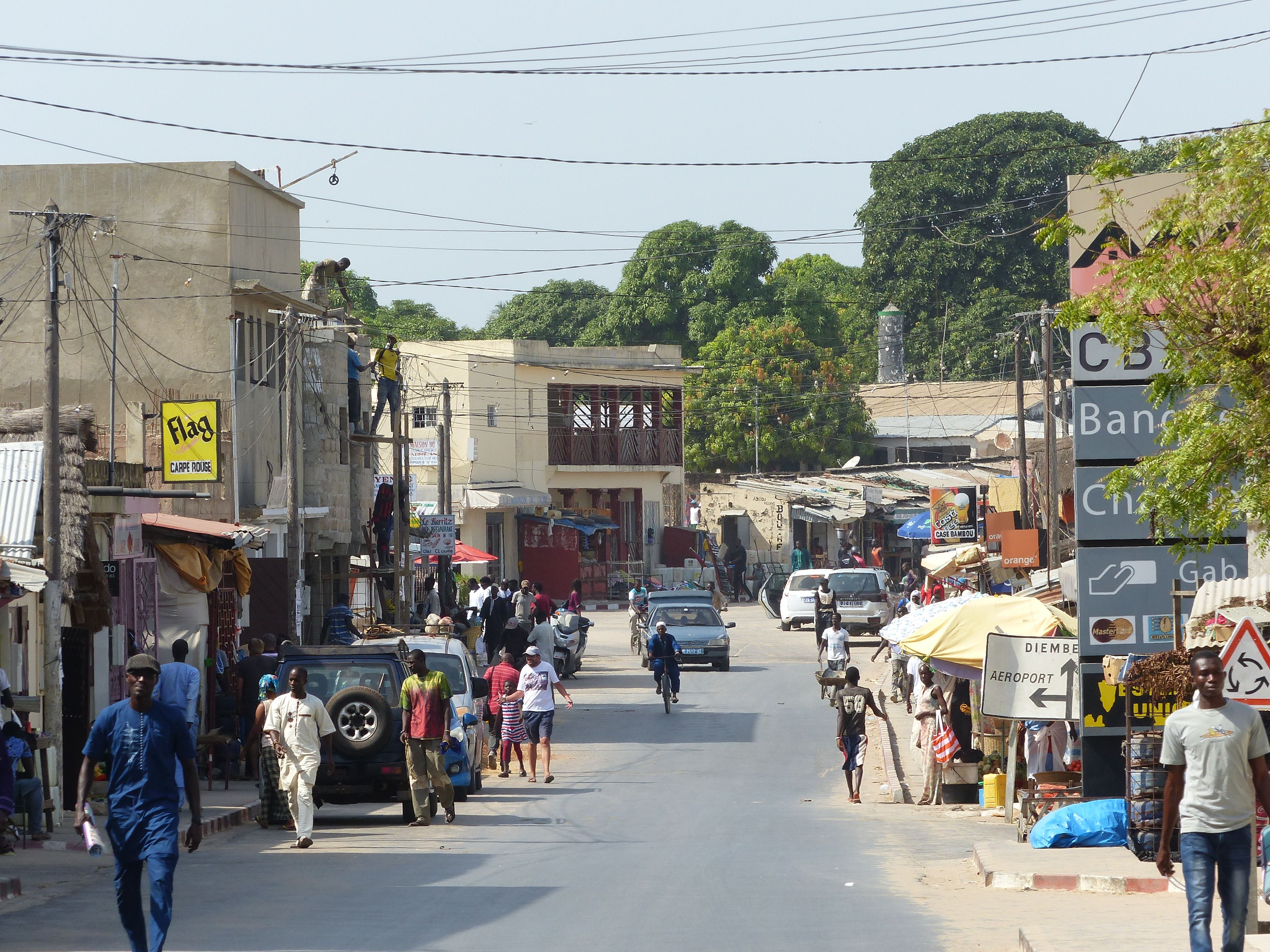
And we were all by ourselves in the Cassamance.
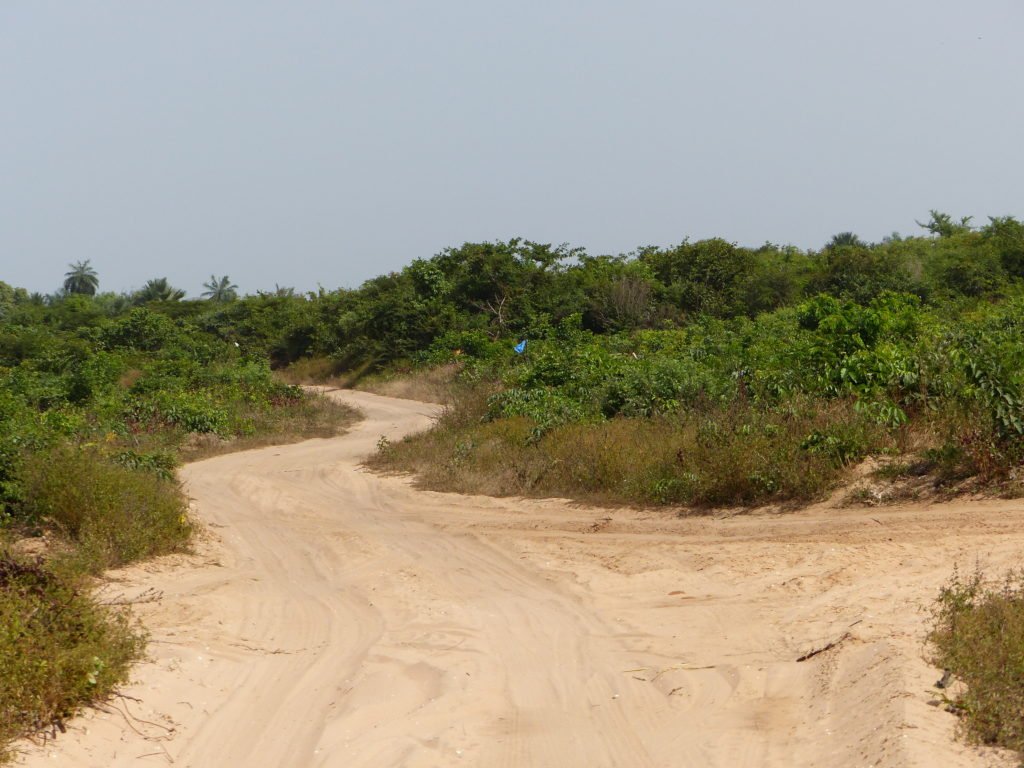
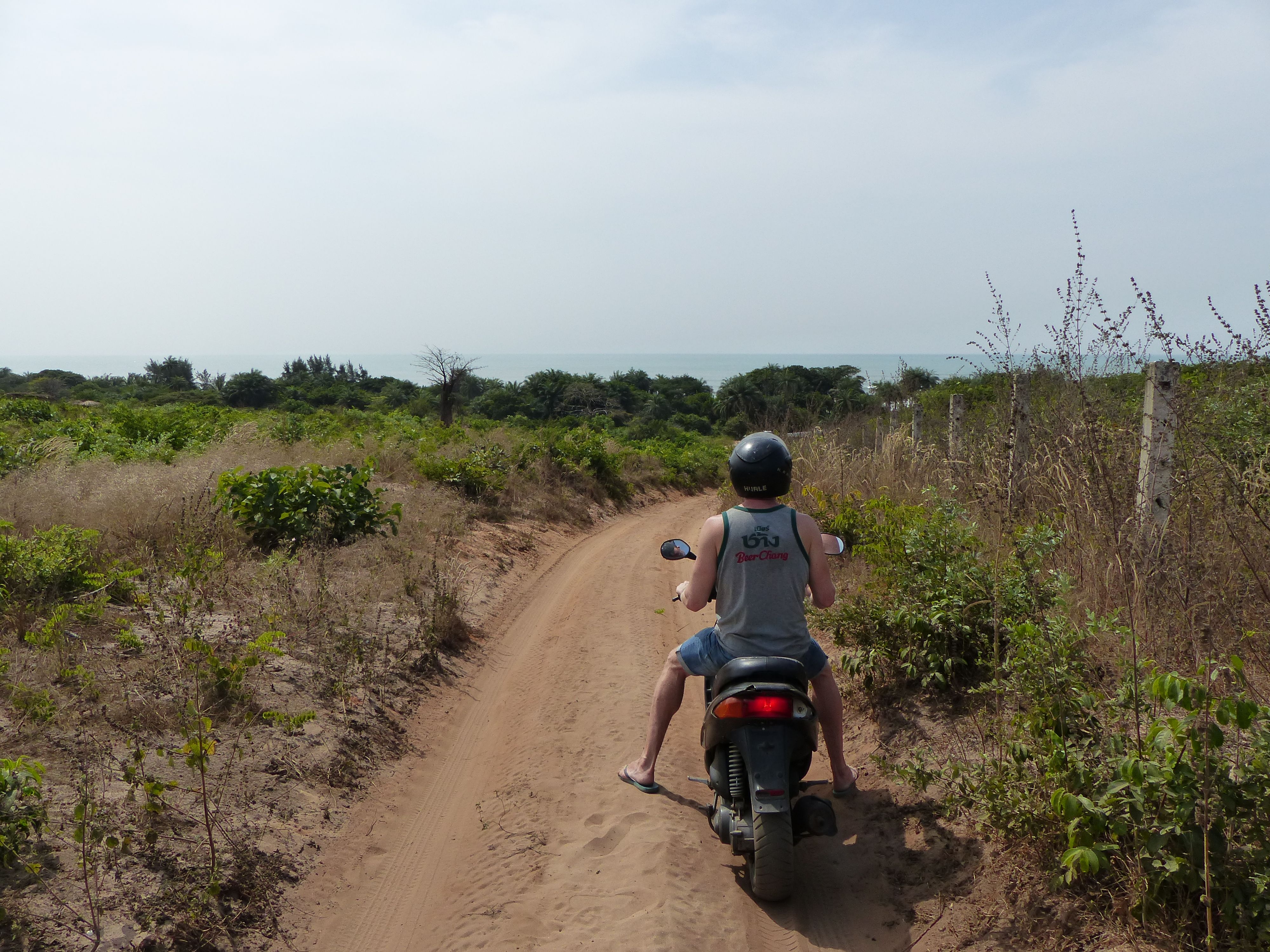
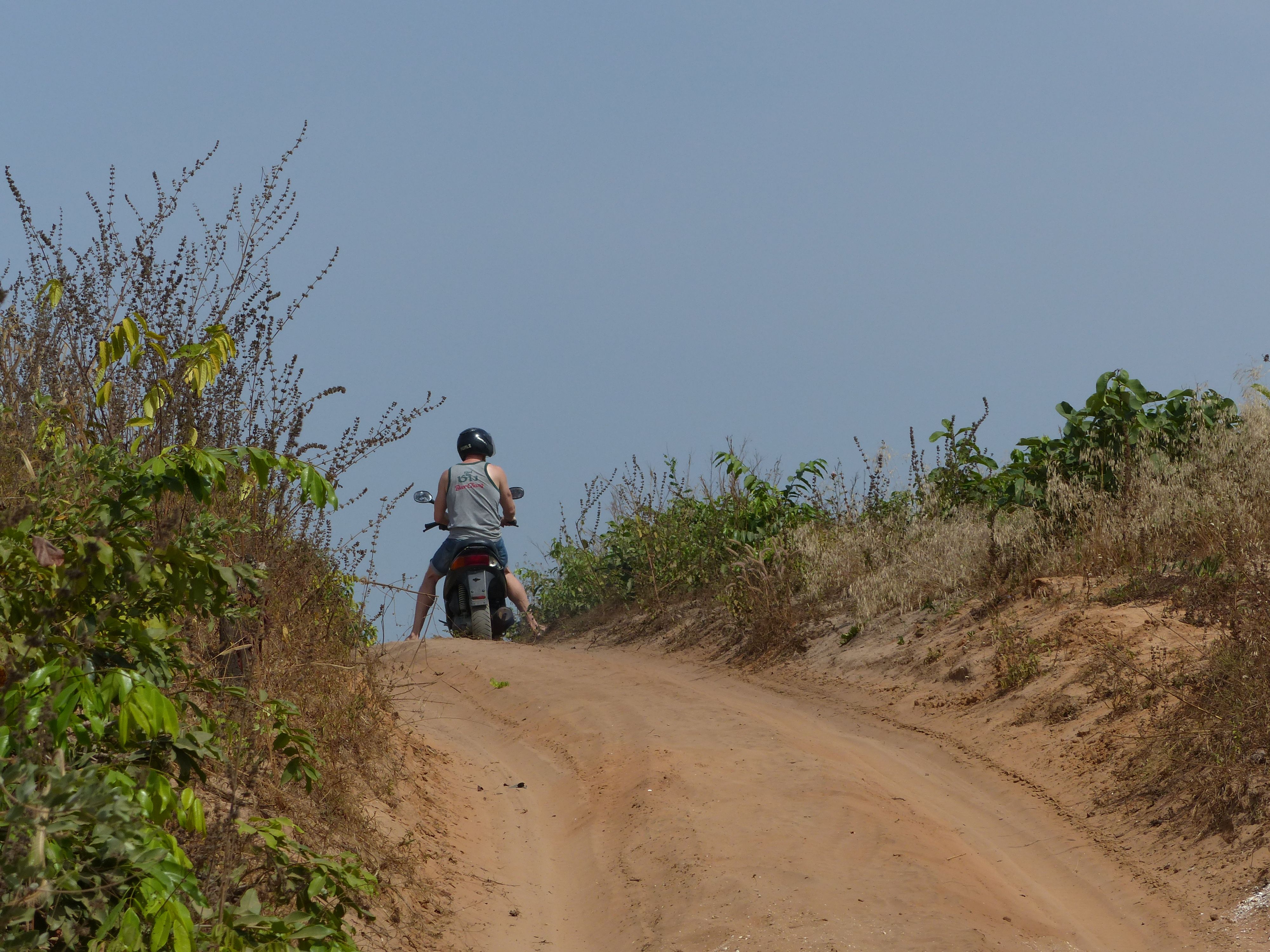
Our bike was in no better shape than any other vehicle we’d been in so far, and we chugged along on sandy roads and forest trails, getting off to push sometimes on the climb back up from long empty beaches. For such a small vehicle the bike turned out to be real gas guzzler and we sputtered into a little town on fumes. Soon enough two local teenagers understood our problem and led us through the village to a house where we bought this litre of fuel in a gin bottle:

…from these kids:
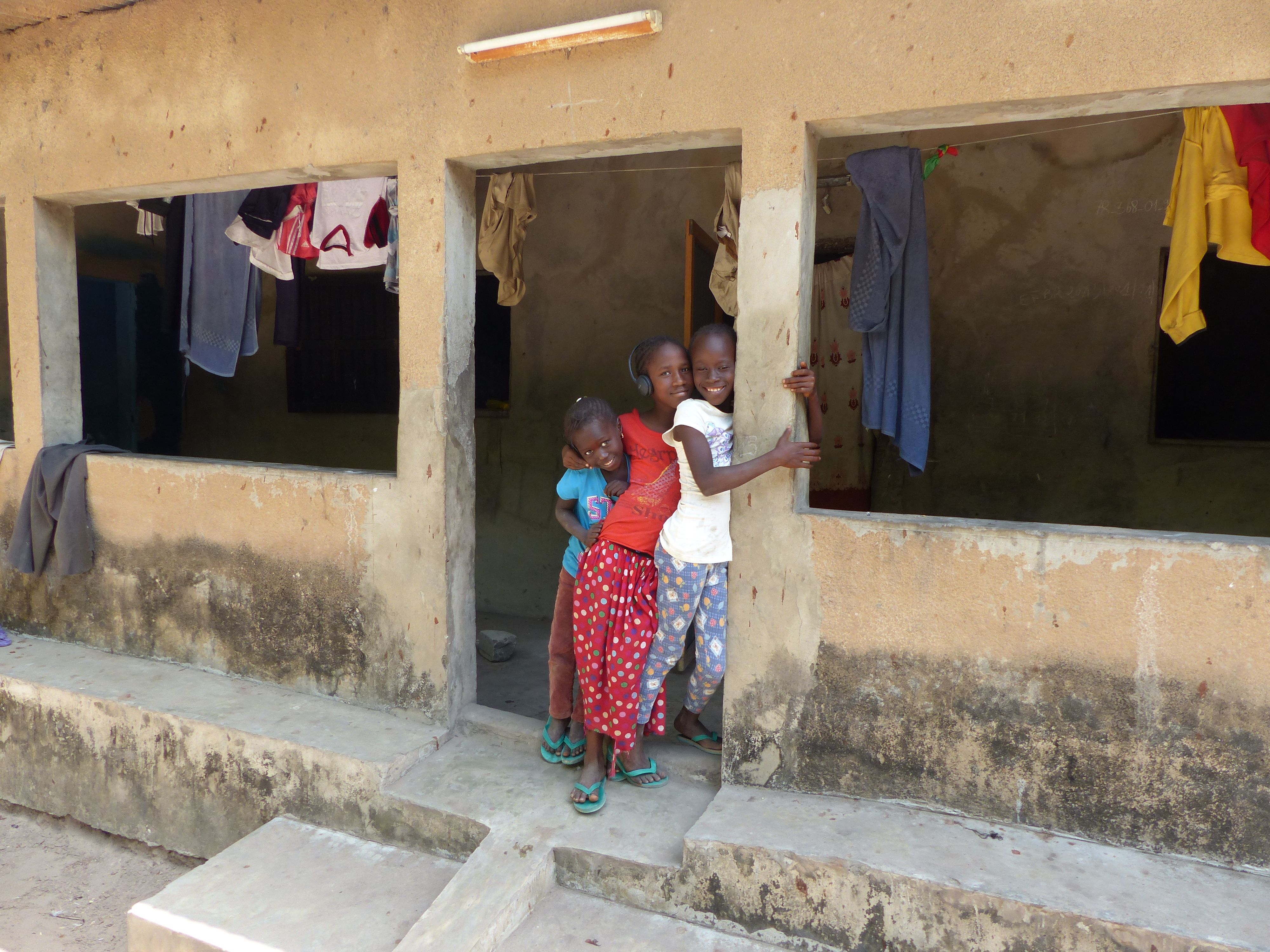
They seemed happy to make the sale – I’m sure they made a great profit selling gasoline in a gin bottle to two toubabs.
We walked back to the bike and filled the tank, then returned the bottle to the kids.
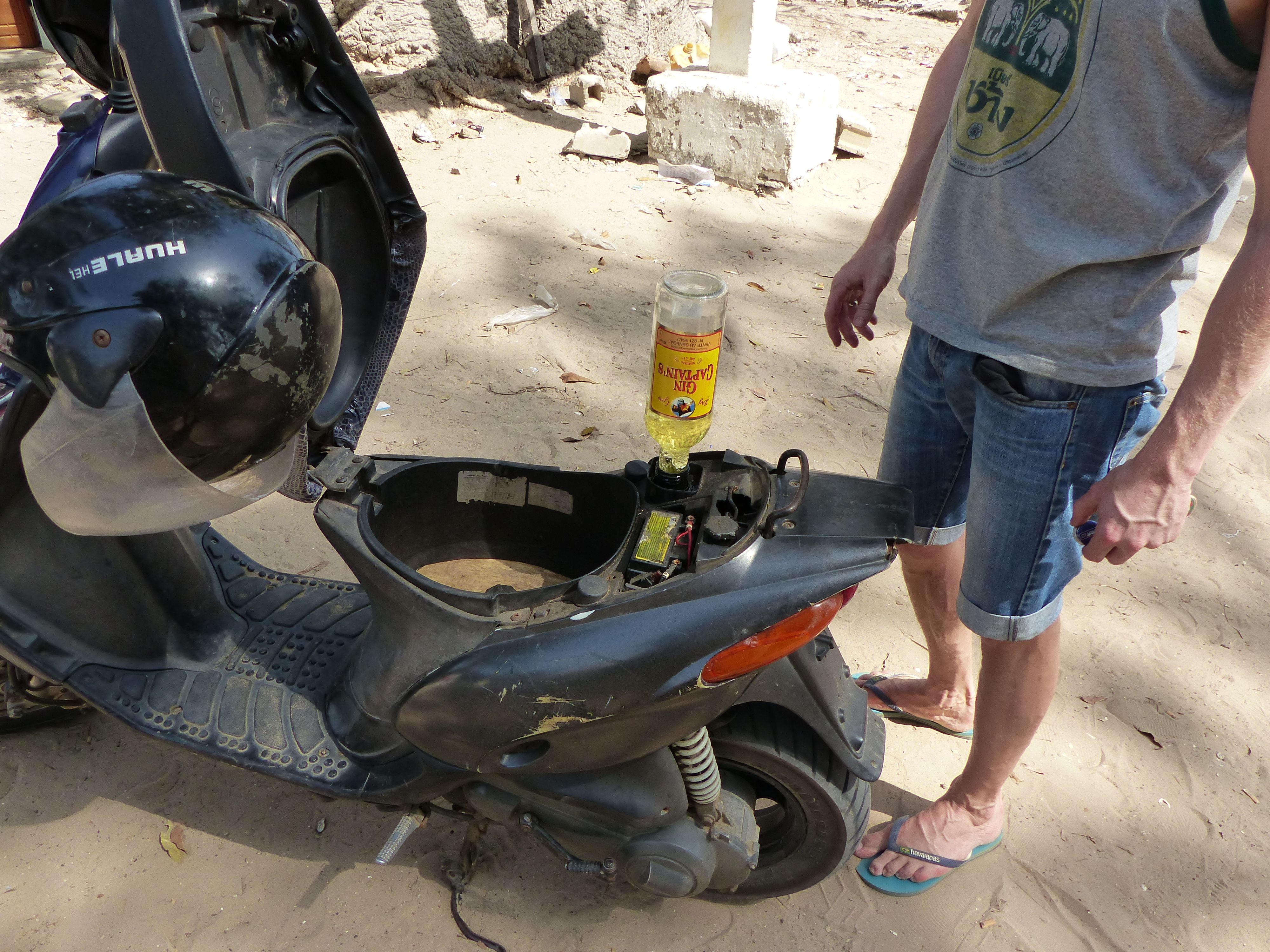
Then we punctured the tire and ended up taking it to this garage where the mechanic (once we tracked him down after his prayers and a lengthy lunch) patched the tire for 2000 CFAs (3 Euros).

And that was not the end of our vehicular problems either. The next day we decided to leave Cap Skirring. A sept-place driver tried hard to convince us to come with him but his car was still empty. We knew that meant waiting for it to fill up with passengers – there is no set schedule for departures. We spied a transport-misto (literally, ‘Mixed Transport’ – whatever that means) nearly full and we got on it instead. The mini bus made it out of town and over the bridge and then with an ominous thump and a shudder it coasted to a permanent stop and we all abandoned ship (the roadsides are littered with the rusted out carcasses of vehicles which have met a similar fate). We sat on the embankment, waiting. The sept-place sailed by – rather triumphantly I felt – leaving us in the dust. Eventually we were shunted onto another bus, stopped to pick not a person but a single, live chicken, and we were on our way again.
Back in Ziguinchor, our old friend the helpful tout and his youthful sidekick greeted us exuberantly. We were happy to see them both, in a way, but employed our favourite tactic of refusing to reveal our destination and instead saying only, ‘it’s a secret’.
Another tout took it upon himself to point us to the front seat and demanded money. I was ready for another breakdown, this time of the nervous variety. I asked the tout if his job was to harass passengers at the bus station. Either he misunderstood me, or he was overcome by a fit of honesty – because he answered ‘Yes’.
Leaving the country seemed like the only way to escape this tout for once and for all. And as it happens, we were doing just that – the bus (if it ever started) would take us to the border with Guinea-Bissau and we’d make our next move into the unknown.
Read More
For more of our adventures (and misadventures) in Senegal, check out the rest of my stories from the road. To help you out with the details, I’ve also written a travel guide about Senegal.
